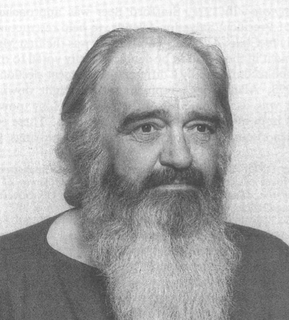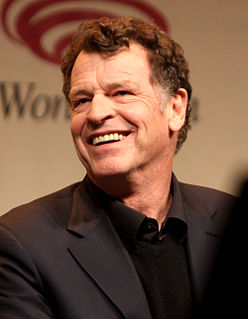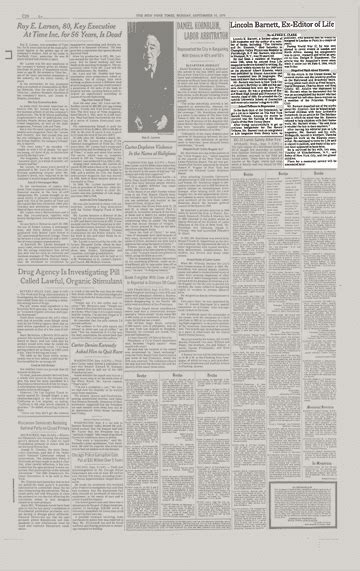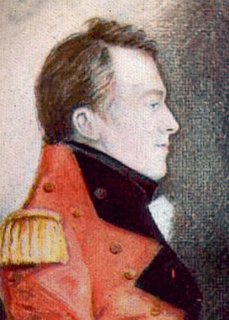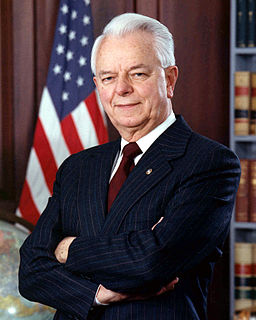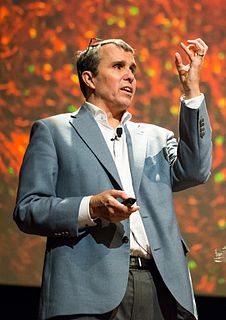Top 1200 Biological Science Quotes & Sayings - Page 2
Explore popular Biological Science quotes.
Last updated on April 19, 2025.
Social Science, is not a 'gay science' but rueful, which finds the secret of this universe in 'supply and demand' and reduces the duty of human governors to that of letting men alone. Not a 'gay science', no, a dreary, desolate, and indeed quite abject and distressing one; what we might call, the dismal science
According to the science of cybernetics, which deals with the topic of control in every kind of system (mechanical, electronic, biological, human, economic, and so on), there is a natural law that governs the capacity of a control system to work. It says that the control must be capable of generating as much "variety" as the situation to be controlled.
When people think science and cooking, they have no idea that it's not correctly expressed. We're actually applying the scientific method. People think chemistry and physics are science, but the scientific method is something else.... It's the science that the world of cooking generates: science of butter; science of the croissant.
Because a fact seems strange to you, you conclude that it is not one. ... All science, however, commences by being strange. Science is successive. It goes from one wonder to another. It mounts by a ladder. The science of to-day would seem extravagant to the science of a former time. Ptolemy would believe Newton mad.
Mathematics has two faces: it is the rigorous science of Euclid, but it is also something else. Mathematics presented in the Euclidean way appears as a systematic, deductive science; but mathematics in the making appears as an experimental, inductive science. Both aspects are as old as the science of mathematics itself.
I thought in my Nobel Lecture I pointed that I was delighted that the Swedish Academy of Science did not quote anything about my current work right now, because the current work that my group is focusing on is actually both the time resolve electrons and possibly x-rays to be able to get the architecture of these molecules, the molecular structures themselves, of very complex biological systems. That's the ultimate goal.
All Science is necessarily prophetic, so truly so, that the power of prophecy is the test, the infallible criterion, by which any presumed Science is ascertained to be actually & verily science. The Ptolemaic Astronomy was barely able to prognosticate a lunar eclipse; with Kepler and Newton came Science and Prophecy.
A lot of environmental and biological science depends on technology to progress. Partly I'm talking about massive server farms that help people crunch genetic data - or atmospheric data. But I also mean the scientific collaborations that the Internet makes possible, where scientists in India and Africa can work with people in Europe and the Americas to come up with solutions to what are, after all, global problems.
Mosts scientist are unable to arrive at a specific definition of biological evolution. “Biological evolution is… change in the properties of populations of organisms (you and me) that [happen during] the lifetime of a single individual. The changes in populations that are considered evolutionary are those that are inheritable via the genetic material from one generation to the next
It is naïve to suppose that the acceptance of evolution theory depends upon the evidence of a number of so-called "proofs"; it depends rather upon the fact that the evolutionary theory permeates and supports every branch of biological science, much as the notion of the roundness of the earth underlies all geodesy and all cosmological theories on which the shape of the earth has a bearing. Thus antievolutionism is of the same stature as flat-earthism.
Science is the key to our future, and if you don’t believe in science, then you’re holding everybody back. And it’s fine if you as an adult want to run around pretending or claiming that you don’t believe in evolution, but if we educate a generation of people who don’t believe in science, that’s a recipe for disaster. We talk about the Internet. That comes from science. Weather forecasting. That comes from science. The main idea in all of biology is evolution. To not teach it to our young people is wrong.
I wanted to be a scientist. My undergraduate degree is in biology, and I really did think I might go off and be some kind of a lady Darwin someplace. It turned out that I'm really awful at science and that I have no gift for actually doing science myself. But I'm very interested in others who practice science and in the stories of science.
Biological energy comes from the sun. Light energy harvested by photosynthesis in chloroplasts and phototropic bacteria becomes stored in carbohydrates and fats. This stored energy can be released by oxidative metabolism in the form of adenosine triphosphate (ATP) and used as fuel for other biological processes.
Mental patterns do not originate out of inorganic nature. They originate out of society, which originates out of inorganic nature. And, as anthropologists know so well, what a mind thinks is as dominated by biological patterns as social patterns are dominated by biological patterns and as biological patterns are dominated by inorganic patterns. There is no direct scientific connection between mind and matter. As the atomic scientist, Niels Bohr, said, "We are suspended in language." Our intellectual description of nature is always culturally derived.
Children are the living messages we send to a time we will not see. From a biological point of view it is inconceivable that any culture will forget that it needs to reproduce itself. But it is quite possible for a culture to exist without a social idea of children. Unlike infancy, childhood is a social artifact, not a biological category.
Evolution explains our biological evolution, but human beings are very unique creatures. As the Dobzhansky said, all animals are unique; humans are the uniquest. And that uniqueness of being human, language, art, culture, our dependency on culture for survival, comes from the combination of traditional biological evolution.
The whole point of science is that most of it is uncertain. That's why science is exciting--because we don't know. Science is all about things we don't understand. The public, of course, imagines science is just a set of facts. But it's not. Science is a process of exploring, which is always partial. We explore, and we find out things that we understand. We find out things we thought we understood were wrong. That's how it makes progress.
The last UN weapons inspectors left Iraq in October of 1998. We are confident that Saddam Hussein retains some stockpiles of chemical and biological weapons, and that he has since embarked on a crash course to build up his chemical and biological warfare capabilities. Intelligence reports indicate that he is seeking nuclear weapons.
If someone is of the opinion that biological men ought to use the men's room and biological females ought to use the women's room - he is regarded as a bigot. I find this absolutely astonishing. Especially since using a toilet facility is a matter of the privacy of other people who are in the room. It's not a matter of the rights of the transgender person.
It [the intelligence service] concludes that Iraq has chemical and biological weapons, that Saddam has continued to produce them, that he has existing and active military plans for the use of chemical and biological weapons, which could be activated within 45 minutes, including against his own Shia population; and that he is actively trying to acquire nuclear weapons capability.
Science fiction is fantasy about issues of science. Science fiction is a subset of fantasy. Fantasy predated it by several millennia. The '30s to the '50s were the golden age of science fiction - this was because, to a large degree, it was at this point that technology and science had exposed its potential without revealing the limitations.
We are living in a society that is totally dependent on science and high technology, and yet most of us are effectively alienated and excluded from its workings, from the values of science, the methods of science, and the language of science. A good place to start would be for as many of us as possible to begin to understand the decision-making and the basis for those decisions, and to act independently and not be manipulated into thinking one thing or another, but to learn how to think. That's what science does.
There's going to be biological differences between the genders. There's going to be biological differences between two women or two men. There's biological differences between all of us. My concern is, why are we so concerned about it? Why are we so worried about it? Why, whenever a study comes out about men do this one way and women do this one way, or men's brains and women's brains - why are we so interested in that? You know, what makes us so fascinated by differences between the sexes? And I think more often than not that interest is deeply embedded in sexism.


